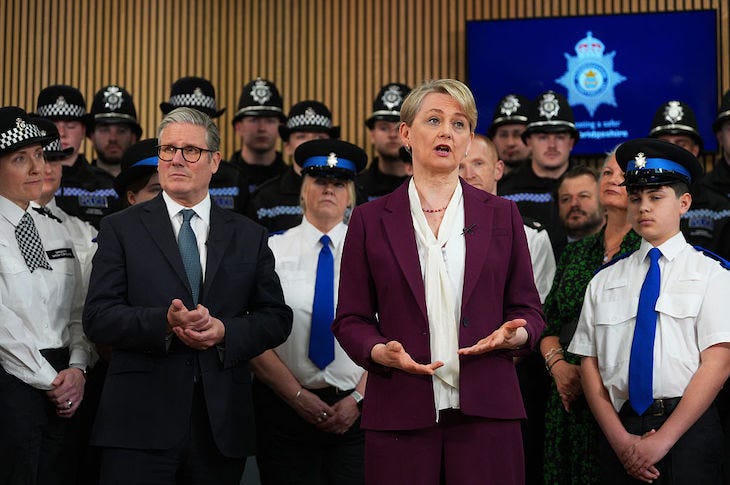They were pale and worried, with that heavy, fixed expression which can always be seen on the faces of those who have something to lose when faced with unexpected events and important changes.
-From The Bridge on the Drina, by Ivo Andrić
I suppose even Rip van Winkle has heard that British politics is in a febrile state. The country is led by a Labour government that sits atop a behemoth of a Parliamentary majority, but nobody respects or likes it. Like a thought experiment in a political science textbook, it appears to be attempting to discover what happens when a government wields absolute power but possesses precisely no authority.
The Conservative Party, which was the governing party in Britain for the previous fourteen years and for much of the 20th century, is meanwhile a demoralised rabble, completely unsure what its status is. In the mould of a recently divorced middle-aged man, it is going through the motions of revamping its wardrobe and hitting the gym, but it is still basically clinging to the absurd notion that the electorate will come back to it in the end - like the political embodiment of the Doobie Brothers’ ‘What a Fool Believes’.
I once likened the Liberal Democrats to an amoeba groping about in pond water for some scum to feast on; the amoeba has grown a bit since then, but its primal gesticulations remain as devoid of sentience as ever. Smaller outfits - the Greens, the Scottish National Party, Plaid Cymru - are enjoying their status as wild cards; it is just about possible that one or several will be invited into coalition government after the next general election (in 2029) if the result is close, and all are slowly but steadily increasing in popularity.
And then there is Reform UK, which only formed in 2018, as the Brexit Party, but has risen meteorically since. In the 2024 General Election it garnered 14% of the votes cast from essentially a standing start; in the 2025 local government elections (just held) it won the biggest share out of any of the parties, at 30%. (For comparison, Labour got 20% and the Conservatives, 15%.) It has all of the momentum and sets all of the agendas - the word which everybody uses to describe it is ‘insurgent’, but probably simply ‘surging’ would be nearer to the mark. It is currently neck-and-neck with Labour in the betting odds for the most seats at the next General Election (13/8 at the time of writing) - a situation which one is compelled to label ‘unprecedented’.
Reform requires separate treatment from the other political parties, because it is a separate animal. The cleavage in British politics is between it, and all the rest (with the possible exception of Sinn Féin). Almost everybody in the country intuits this, and the reason for it. But they have a hard time clearly expressing it. It doesn’t really come down to policy, except perhaps in respect of immigration (everybody knows that Reform want to bring numbers down in general, and specifically want to take a much tougher stance against illegal migration and asylum-seekers) and ‘Net Zero’ (a concept which Reform is clearly against). It is much more visceral than that. I perhaps heard it best expressed when at a Middlesborough FC match the other week. Teesside is a hotbed of Reform support, and chatting to a bunch of elderly Boro supporters, who were all intending to vote Reform in the (then forthcoming) elections, one of them summed up his reasoning succinctly as, ‘The country’s fucked and it needs reforming.’
Keep reading with a 7-day free trial
Subscribe to News from Uncibal to keep reading this post and get 7 days of free access to the full post archives.




